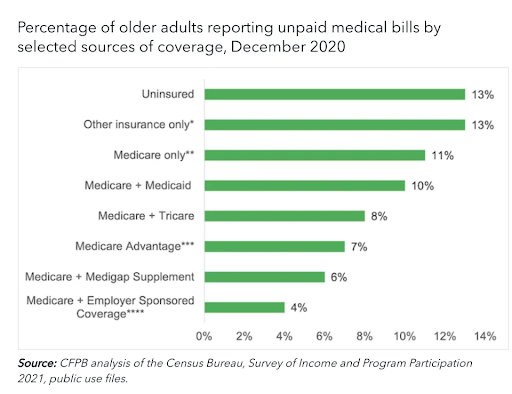|
|
Following Merck, U.S. Chamber of Commerce, Bristol Myers Squibb and PhRMA Sue Administration Over Drug Price Negotiation |
|
The U.S. Chamber of Commerce, Bristol Myers Squibb and PhRMA, the drug industry’s trade association, have filed three separate lawsuits against the Biden administration to block Medicare’s authority to negotiate lower drug prices. They joined Merck, which sued over the policy on June 6.
PhRMA CEO Steve Ubl said the provisions of the Inflation Reduction Act that will allow Medicare to start negotiating prices for certain drugs amount to “a government mandate disguised as negotiation.”
The lawsuits are the next step in an epic battle over the federal government’s efforts to bring skyrocketing drug prices under control. More lawsuits give the industry more opportunities for success, and PhRMA's suit, filed in a Texas court, means the case could eventually be heard by the staunchly conservative 5th Circuit Court of Appeals.
Legal experts say the pharmaceutical industry will likely file many more lawsuits this fall, as drug corporations ultimately aim to take their battle to the U.S. Supreme Court to strike down the law.
The Alliance, health advocates, and consumer organizations note that negotiating a fair price for drugs is nothing new and is a hallmark of a free market economy — governments and insurance companies around the world negotiate drug prices on behalf of their citizens every day. In the United States, the Departments of Defense and Veterans Affairs and the Medicaid program already negotiate prices. Further, federal, state, and local governments routinely negotiate the cost of other goods they purchase from private sector companies.
“The drug industry needs to quit making insincere arguments and start negotiating a fair deal,” said Robert Roach, Jr., President of the Alliance. “By giving Medicare the ability to negotiate prices, President Biden’s Inflation Reduction Act, once implemented, will save taxpayers and patients $25 billion. We should be building on this law to make sure people can afford the drugs they need to be healthy.” |
|
Millions of Insured Older Americans Face Unpaid Medical Bills
|
|
Medical debt for older Americans with health insurance is on the rise: new research published by the Consumer Financial Protection Bureau Office for Older Americans found that while 98% of people over the age of 65 have health insurance through enrollment in programs like Medicare, many are still swamped with unpaid bills for medical care.
Nearly four million older adults could not pay their medical bills in full in 2020, the latest year that data is available, per the report. Over two-thirds of those with unpaid bills had coverage from more than one source, such as Medicare, Medicare Advantage, Medicaid, Medigap, employer-based coverage, or Tricare, the overall military health plan.
The average amount in unpaid medical bills reported by older adults in that period was $13,800, up 20% from $11,700 in 2019. That translates to an increase in unpaid medical bills among older adults from $44.8 billion in 2019 to $53.8 billion in 2020. |
|
|
The most common causes are out-of-network charges, deductibles and other cost-sharing fees, services that are not covered by Medicare, in addition to frequent and complex medical care, and limited income, according to |
|
the researchers. However, the biggest reason for falling behind is medical billing errors.
“Older adults are more likely to have complicated health needs, which require a great deal of documentation,” said Richard Fiesta, Executive Director of the Alliance. "This can lead to delays in payment, errors in who is billed, and providers seeking inappropriate reimbursement. Whenever possible, patient advocates advise working with your health care providers to make sure a procedure is covered before you receive the care.” |
|
Using Aspirin Every Day May Cause Anemia in Seniors |
|
Studies show that more than 40% of adults ages 60 or older take an aspirin every day to prevent dangerous blood clots that could lead to a heart attack or stroke. However, some experts have backed away from recommending blanket aspirin therapy for all older adults, after studies showed that doing so can actually increase the risk of major bleeding.
Knowing that aspirin can contribute to the danger of big bleeds like aneurysms, researchers studied whether it might also be a factor in more subtle blood loss: the kind that may lead to anemia, or reduced oxygen in the blood. Anemia is generally tied to worse health – including fatigue, memory and thinking trouble, depression and an increased risk of death.
New research published Monday in the Annals of Internal Medicine followed more than 18,000 adults who were 65 and older from the United States and Australia. Based on their results, the researchers estimated that 24% of seniors in the daily aspirin group would develop anemia within five years, compared with 20% of those in the placebo group.
“The researchers say that aspirin is still recommended in some cases for people who have had a heart attack or stroke, to prevent another from occurring,” said Joseph Peters, Jr., Secretary-Treasurer of the Alliance. “We urge people to consult their doctor before making a decision on whether daily aspirin is right for you.” |
|
KFF Health News: Dementia Can Take a Toll on Financial Health, as Some Families Learn the Hard Way By Sarah Boden, WESA (NPR-Pittsburgh) |
|
Angela Reynolds knew her mother’s memory was slipping, but she didn’t realize how bad things had gotten until she started to untangle her mom’s finances: unpaid bills, unusual cash withdrawals, and the discovery that, oddly, the mortgage on the family home had been refinanced at a higher interest rate. |
|
|
Jonnie Lewis-Thorpe (right) lives with daughter Angela Reynolds. Reynolds can't pinpoint when Alzheimer's disease crept into her mother's life. It wasn't until Reynolds began reviewing her mother's bank statements that she realized Lewis-Thorpe — once a hospital administrator — had long been in the grip of the disease. (KATIE BLACKLEY/WESA) |
|
Looking back, Reynolds realizes her mother was in the early stages of Alzheimer’s disease: “By the time we caught on, it was too late.”
Reynolds and her mother are among a large group of Americans grappling with the financial consequences of cognitive decline. |
|
Read more here. |
|
Thanks for reading. Every day, we're fighting to lower prescription drug prices and protect retirees' earned benefits and health care. But we can't do it without your help. Please support our work by donating below. |
|
|
|
|
Alliance for Retired Americans | 815 16th Street, NW | Washington, DC 20006 | www.retiredamericans.org



